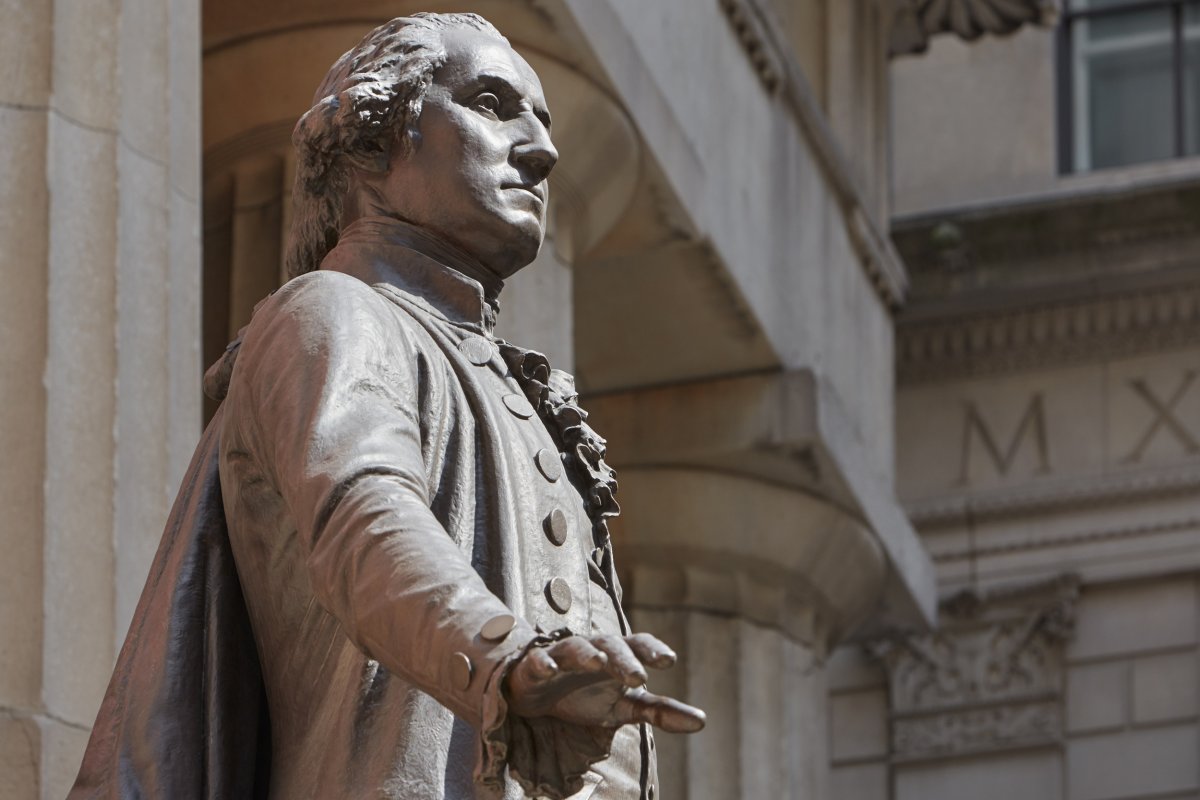A DNA study of unmarked remains has identified family members of the first president of the United States.
The research, published in the journal iScience, identified the historical remains of George Washington's grandnephews, Samuel Walter Washington and George Steptoe Washington Jr., as well as their mother, Lucy Payne Washington, from unmarked, fragmentary bones buried at West Virginia's Harewood family cemetery in the mid-1800s.
The research could have a number of implications. For example, the researchers plan to apply their methods to identify the remains of service members lost around the world in past conflicts going back to World War II.
"The ability to test historical samples such as the Harewood Cemetery remains allows us to evaluate and improve the methodologies applied to our casework samples that are of similar quality to historical remains, and often times even more degraded," Courtney Cavagnino said in a press release. She is the study's first author and is with the Armed Forces Medical Examiner System's Armed Forces DNA Identification Laboratory (AFMES-AFDIL) at Delaware's Dover Air Force Base.
In 1999, an excavation was conducted at the Harewood Cemetery with the aim of identifying the unmarked grave of Samuel Washington, the younger brother of the president and the Harewood estate's former owner. This excavation uncovered five, unmarked graves as well as skeletal remains, which were collected and cataloged for testing.
While preliminary research on the finds was performed in the early 2000s, the latest study attempted to confirm the identities of the individuals associated with the remains recovered from three of the burials.
To do this, the researchers performed a range of DNA tests on the remains in combination with analyses of DNA from a living descendant of the first president, S.W. Washington.
"Our data confirmed the identities of the three sets of remains, and we furthermore resolved which male was the direct ancestor of S.W. Washington, the living descendant," said Charla Marshall, a senior author of the study, in a press release.
"This particular case gave us an opportunity to test methods for extended kinship prediction that we developed using a set of known, degraded DNA samples needing identity confirmation," said Marshall, deputy director of Department of Defense DNA Operations. "Our laboratory is currently validating these novel methods to be used in routine casework."

AFMES-AFDIL, a division of DoD DNA Operations, is the Department of Defense's only human remains DNA laboratory supporting current operations, as well as efforts to identify service members from past conflicts extending back to World War II.
According to the researchers, the newly developed methods used in the latest study provide a way to make positive IDs of remains in more difficult cases that involve significant degradation.
Do you have a tip on a science story that Newsweek should be covering? Do you have a question about genetics? Let us know via science@newsweek.com.
Uncommon Knowledge
Newsweek is committed to challenging conventional wisdom and finding connections in the search for common ground.
Newsweek is committed to challenging conventional wisdom and finding connections in the search for common ground.
About the writer
Aristos is a Newsweek science reporter with the London, U.K., bureau. He reports on science and health topics, including; animal, ... Read more
To read how Newsweek uses AI as a newsroom tool, Click here.








